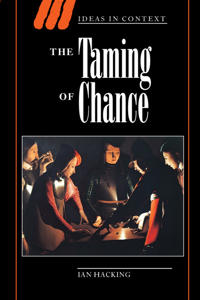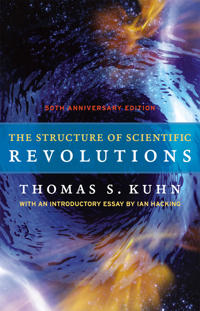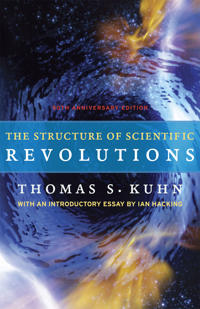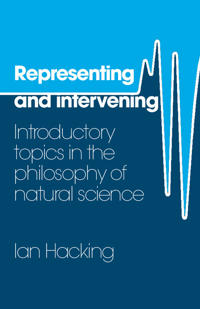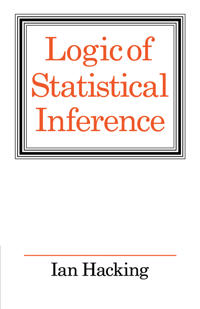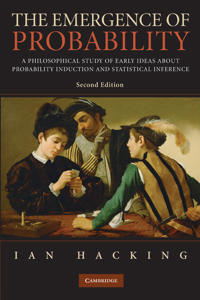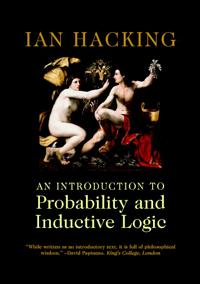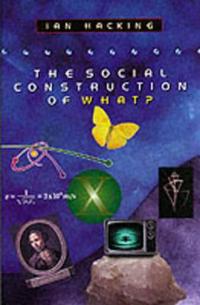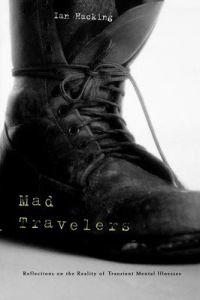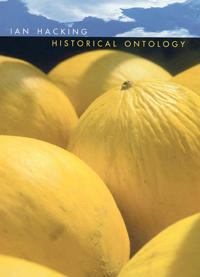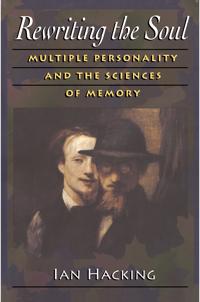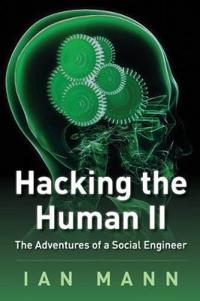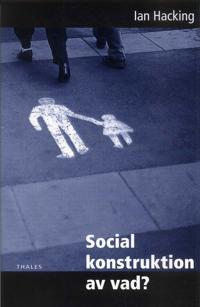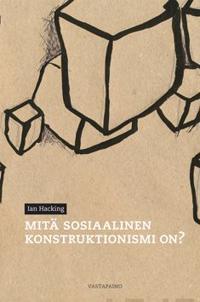The Taming of Chance (Pocket)
avIan Hacking, Tim Hacking, Ian Hacking
ISBN: 9780521388849 - UTGIVEN: 199009In this important new study Ian Hacking continues the enquiry into the origins and development of certain characteristic modes of contemporary thought undertaken in such previous works as the best-selling The Emergence of Probability. Professor Hacking shows how by the late nineteenth century it bec[...]
The Structure of Scientific Revolutions (Inbunden)
avThomas S. Kuhn, Ian Hacking, Thomas S. Kuhn
ISBN: 9780226458113 - UTGIVEN: 201204A good book may have the power to change the way we see the world, but a great book actually becomes part of our daily consciousness, pervading our thinking to the point that we take it for granted, and we forget how provocative and challenging its ideas once were - and still are. "The Structure of [...]
The Structure of Scientific Revolutions (Pocket)
avThomas S. Kuhn, Ian Hacking, Thomas S. Kuhn
ISBN: 9780226458120 - UTGIVEN: 201204A good book may have the power to change the way we see the world, but a great book actually becomes part of our daily consciousness, pervading our thinking to the point that we take it for granted, and we forget how provocative and challenging its ideas once were-and still are. "The Structure of Sc[...]
Representing and Intervening (Pocket)
avIan Hacking
ISBN: 9780521282468 - UTGIVEN: 198309This is a lively and clearly written introduction to the philosophy of natural science, organized around the central theme of scientific realism. It has two parts. âRepresentingâ deals with the different philosophical accounts of scientific objectivity and the reality of scientific entitie[...]
Logic of Statistical Inference (Häftad)
avIan Hacking
ISBN: 9780521290593 - UTGIVEN: 197603This book is a philosophical study of the basic principles of statistical reasoning. Professor Hacking has sought to discover the simple principles which underlie modern work in mathematical statistics and to test them, both at a philosophical level and in terms of their practical consequences fort [...]
The Emergence of Probability (Pocket)
avIan Hacking
ISBN: 9780521685573 - UTGIVEN: 200607Historical records show that there was no real concept of probability in Europe before the mid-seventeenth century, although the use of dice and other randomizing objects was commonplace. Ian Hacking presents a philosophical critique of early ideas about probability, induction, and statistical infer[...]
An Introduction to Probability and Inductive Logic (Pocket)
avIan Hacking
ISBN: 9780521775014 - UTGIVEN: 200107This is an introductory 2001 textbook on probability and induction written by one of the world's foremost philosophers of science. The book has been designed to offer maximal accessibility to the widest range of students (not only those majoring in philosophy) and assumes no formal training in eleme[...]
The Social Construction of What? (Häftad)
avIan Hacking
ISBN: 9780674004122 - UTGIVEN: 200011Often lost in the debate over the validity of social construction is the question of what is being constructed. Particularly troublesome in this area is the status of the natural sciences, where there is conflict between biological and social approaches to mental illness, and in other areas. Ian Hac[...]
Mad Travelers: Reflections on the Reality of Transient Mental Illnesses (Häftad)
avIan Hacking
ISBN: 9780674009547 - UTGIVEN: 200211Hacking tells the fascinating tale of Albert Dadas, a native of France's Bordeaux region and the first diagnosed mad traveler. Dadas suffered from a strange compulsion that led him to travel obsessively, often without identification, not knowing who he was or why he traveled. Using the records of Ph[...]
Historical Ontology (Häftad)
avIan Hacking
ISBN: 9780674016071 - UTGIVEN: 200409With the unusual clarity, distinctive and engaging style, and penetrating insight that have drawn such a wide range of readers to his work, Ian Hacking here offers his reflections on the philosophical uses of history. The focus of this volume, which collects both recent and now-classic essays, is th[...]
Rewriting the Soul (Häftad)
avIan Hacking
ISBN: 9780691059082 - UTGIVEN: 199808Twenty-five years ago one could list by name the tiny number of multiple personalities recorded in the history of Western medicine, but today hundreds of people receive treatment for dissociative disorders in every sizeable town in North America. Clinicians, backed by a grassroots movement of patien[...]
Social konstruktion av vad? (Häftad)
avIan Hacking
ISBN: 9789172350540 - UTGIVEN: 200501Social konstruktion eller oberoende verklighet? Frågan har dominerat den metodologiska debatten, framförallt inom samhällsvetenskaperna, under de senaste decennierna. Men vad är social konstruktion och exakt vad är det som tänks vara socialt konstruerat? Ian Hacking benar upp de teroretiska pr[...]
Mitä sosiaalinen konstruktionismi on? (Häftad)
avIan Hacking
ISBN: 9789517682244 - UTGIVEN: 2009Sosiaalisesta konstruktionismista on monissa yhteiskunta- ja humanistisissa tieteissä tullut parinkymmenen viime vuoden aikana suosittu lähestymistapa. Usein tuntuu kuitenkin siltä, että monet tutkijat eivät ole tarkkaan selvillä siitä mihin he sitoutuvat kun he julistautuvat (sosiaalisiksi) [...]
Against Method (Inbunden)
avPaul Feyerabend, Ian (INT) Hacking, Paul Feyerabend
ISBN: 9781844674435 - UTGIVEN: 2010-05Contemporary philosophy of science has paid close attention to the understanding of scientific practice, in contrast to the previous focus on scientific method. Paul Feyerabend's acclaimed work, which sparked controversy and continues to fuel fierce debate, shows the deficiencies of many widespread [...]

